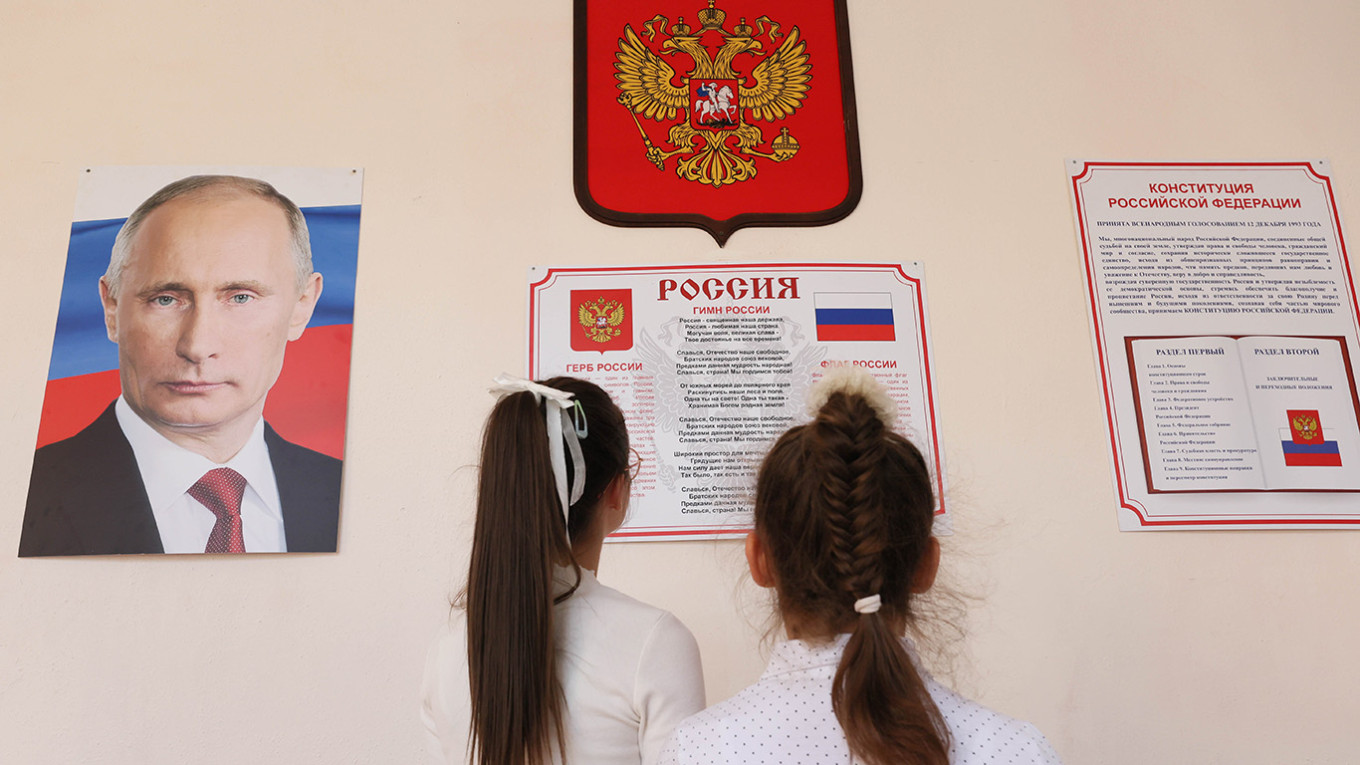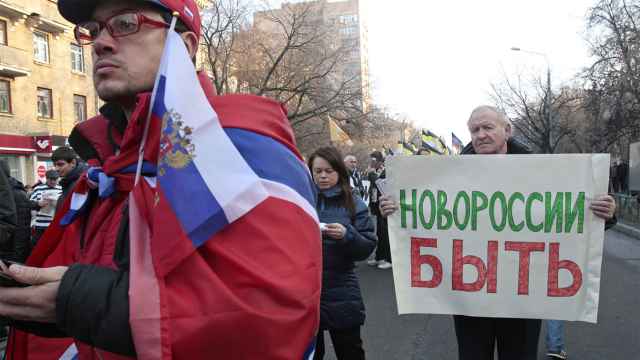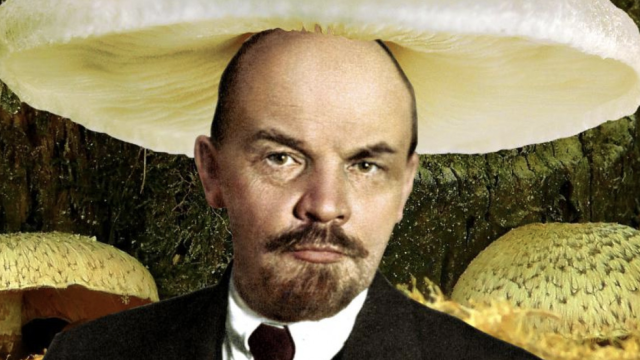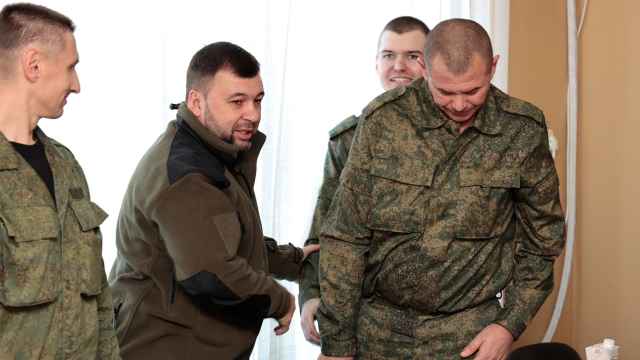From the very beginning of the Russo-Ukrainian war to the recent peace negotiations in Istanbul, the Russian government has desperately tried to convince the world that the Donbas region has always been “Russian in spirit.”
From Kremlin-fabricated stories about the “Russian children of Donbas” supposedly killed by Ukrainian Nazis — used to justify the full-scale invasion — to public figures like Elon Musk declaring that Ukraine has “lost Donbas forever,” narratives about Donetsk are too often framed as stories about Russian territory.
It may seem like people in Donetsk chose this fate — that they chose the Kremlin. But I know better because Donetsk is my hometown, where I spent the first 18 years of my life.
We didn’t choose to be part of Russia. We were taught to be.
If you want to understand what Russia calls influence in Donetsk, you need to look at how young people were targeted.
The education system in Donetsk during the 2000s wasn’t about building critical thinking. It was about ideological control and nostalgia for the Soviet era. From our first days in school to our last days at university, we were subjected to a deliberate, systemic form of pro-Russian indoctrination.
I studied at Donetsk Special Physico-Mathematical School No. 35, a state-owned school considered one of the best in the city because of its high percentage of students who enroll at prestigious universities. The atmosphere there was somewhat better than in an average state school because our principal cared about its reputation.
But I have been having nightmares about school for the 10 years since I finished. One of the main reasons, apart from being bullied for being disabled, was the general absence of freedom. Stepping inside the school meant walking into a place with authoritarian rules where any individuality was suppressed. In a typically Soviet way, obedience and the ability to repeat after your elders and betters were considered the main virtues. It created the perfect ground for the later Russian occupation. We were taught to embrace authoritarianism.
All our teachers were indoctrinated by Soviet education, as were the authors of our textbooks, and it influenced everything we saw and learned.
Don’t believe anyone who tells you that Ukraine persecuted Russian-speaking people. In schools, the Russian language was celebrated, not erased.
There were too many kids in my class to fit in one room, so we were split into three groups. Each group was taught the same thing. The only difference was the language of schooling. Until the 9th grade, two were Russian-speaking while the third spoke Ukrainian. When we reached 9th grade, some kids left school for colleges or university prep courses, so the three classes merged into one. And guess what — that class was Russian-speaking!
In our school, like in most Ukrainian schools, Russian was mandatory alongside Ukrainian and English. All students had two history courses: Ukrainian history and world history. We also had two literature courses: Ukrainian literature and world literature. This might surprise many Western readers, but world history and world literature were predominantly Russian History and literature. We learned almost nothing about the Middle East, Asia, Africa or South America. But we learned everything about Russia.
The way history was taught was peculiar. We were encouraged to praise Cossack leaders loyal to Russia or those who maintained good relationships with Russian tsars, as well as Russian emperors like Catherine II (known as Catherine the Great). Of course, teachers never mentioned that Catherine the Great created the Pale of Settlement for Jews, including Ukrainian Jews, or that she was responsible for the genocide of Crimean Tatars.
When pastors were invited to our schools, they came from the Russian Orthodox Church, which is officially connected to the Kremlin. In my case, they came from a nearby church that distributed antisemitic copies of the Protocols of the Elders of Zion in their shops. As a student with Jewish heritage, I couldn’t feel safe alongside them. It is ironic that Kremlin propaganda is calling Ukrainians “Nazis!”
Of course, there were attempts to make education more pro-Ukrainian. But those efforts were so clumsy that they made teenage me hate everything Ukrainian. When Ukraine elected its first pro-European president, Viktor Yushchenko, new Ukrainian history textbooks were printed. But they came with pictures of him and his family at the end, like he was cultivating a cult of personality.
The people our old curriculum labeled as traitors suddenly became heroes. Teachers didn’t explain why this change happened. They behaved as if we all had collective amnesia, which filled me with dread. There was no stable truth, no stable past.
Many years later, I saw the same feelings and situations reflected only once — in George Orwell’s 1984. One day, Oceania has always been at war with East Asia. And the next day, they have always been allies.
One day, Russia is our brotherly nation. The next day, Russia is the enemy. Then, when the pro-Russian leader Viktor Yanukovych came to power, history was rewritten again. Now we have always been at peace with Russia.
No explanation was ever given. We were too stupid to be trusted with the truth, weren’t we? I’m sure two of our school principals had some patriotic feelings toward Ukraine. But it was old-school, Soviet patriotism — patriotism without thinking or reflection, not the kind needed for a modern European state. As American philosopher and civil rights activist Audre Lorde said, “The master’s tools will never dismantle the master’s house.” You cannot fight Russian propaganda by suppressing everyone’s ability to celebrate their national heritage. It would be hypocritical to make all kids call themselves Ukrainians and not point out that Ukraine is a multinational country consisting of Jews, Tatars, Armenians and Romanians. If you do that, you will be no better than Russian propagandists.
Russian and Soviet imperialism were never discussed seriously. The crimes the Soviets committed against Indigenous peoples — including Stalin’s genocide of Crimean Tatars — were barely acknowledged. The role Ukraine played in working together with Crimean Tatar leaders was glossed over. Meanwhile, we learned that Russian poets saw the peninsula as Russian land, not the Crimean Tatars’. This was the first step to justifying the future occupation of the region.
Around the time of the Second Russian-Chechen war, we learned about the Beslan school siege and the horrendous crimes Chechens were accused of committing against Russian civilians. But we were never told that Russia bombed Chechen schools, hospitals and markets, just like how Russia would later bomb civilians in our neighboring city, Mariupol. No one spoke about the mass slaughter in Chechen villages like Samashki and Novye Aldy.
If Ukrainian authorities had paid enough attention to those crimes to make them part of the school curriculum, might it have been easier to predict — or even prevent — the massacre in Bucha?
What if Ukrainian youth knew more about how Moscow’s frontmen in the North Caucasus kidnap innocent young people, torture and kill them in the name of fighting terrorism? Maybe Kremlin puppets wouldn’t have been able to create the Donetsk People’s Republic and the region’s youth wouldn’t be kidnapped and forced to fight other Ukrainians.
But these hypotheticals do not change the situation today.
Russian indoctrination was pushed on us in public schools and continued at universities. Ukrainian children — especially children from the Donbas region — were brainwashed. It was partly because our teachers were products of Soviet education. But it was also the intentional result of the politics of Viktor Yanukovych’s pro-Russia Party of Regions.
It is actually a wonder that so many of my peers from Donetsk later supported the 2014 Revolution of Dignity. Some of us rebelled. Some of us remained open-minded. Some of us even fight for the Ukrainian military today.
But the majority are suffering under the occupation they once welcomed.
Their education is to blame. We must confront this because even after the war with Russia ends on the battlefield, the real battle will continue in our minds. If the Ukrainian government fails to win that war, then Russia’s influence will persist. Then, the next generation of children will be indoctrinated and history will repeat itself.
A Message from The Moscow Times:
Dear readers,
We are facing unprecedented challenges. Russia's Prosecutor General's Office has designated The Moscow Times as an "undesirable" organization, criminalizing our work and putting our staff at risk of prosecution. This follows our earlier unjust labeling as a "foreign agent."
These actions are direct attempts to silence independent journalism in Russia. The authorities claim our work "discredits the decisions of the Russian leadership." We see things differently: we strive to provide accurate, unbiased reporting on Russia.
We, the journalists of The Moscow Times, refuse to be silenced. But to continue our work, we need your help.
Your support, no matter how small, makes a world of difference. If you can, please support us monthly starting from just $2. It's quick to set up, and every contribution makes a significant impact.
By supporting The Moscow Times, you're defending open, independent journalism in the face of repression. Thank you for standing with us.
Remind me later.






